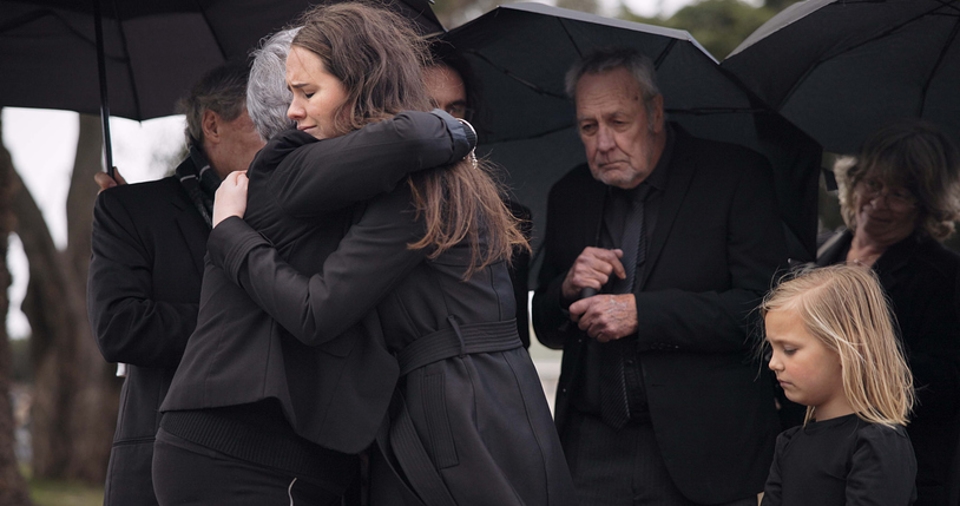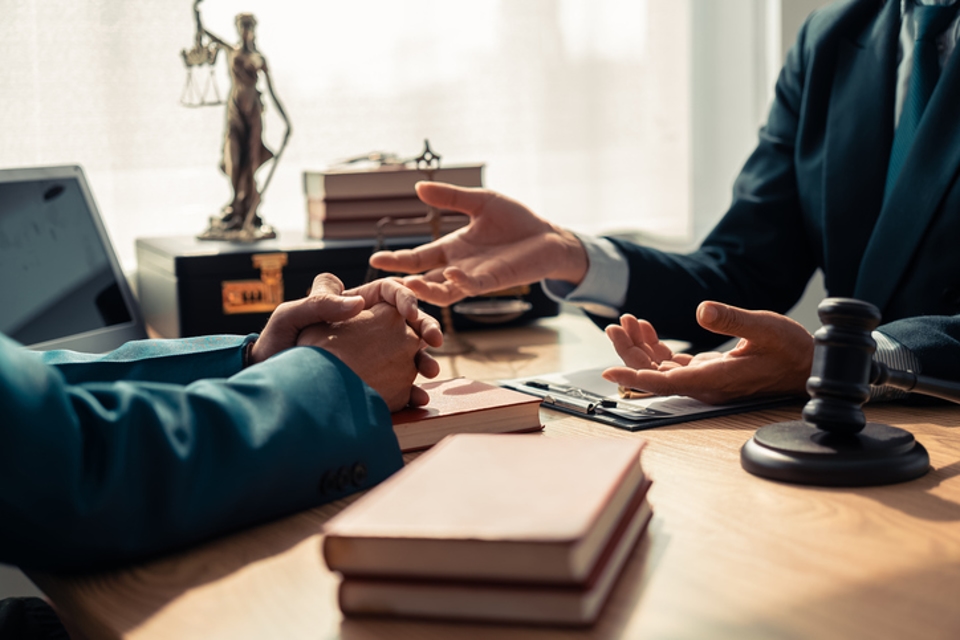Hey everyone, grab a coffee (or your beverage of choice) and let’s chat for a bit. You know, I’ve been in this legal world for over a decade now, and if there’s one thing that always gets my attention, it’s talking about motorcycle accidents. Maybe it’s because I know so many folks who love the freedom of the open road on two wheels, or maybe it’s just because these cases… well, they’re different. They often come with unique hurdles, and frankly, a lot more is usually at stake for the rider.
It’s not just about the physical recovery, which can be brutal – we all know bikes don’t have airbags or crumple zones. It’s also about navigating the legal maze afterward. Trying to get fair compensation when you’re already dealing with injuries, medical bills piling up, maybe lost time from work… it’s overwhelming. So, I wanted to sit down and share some thoughts, kind of like we’re just talking shop, about what you absolutely *need* to know if you, or someone you care about, ends up in that tough spot. Think of this as your friendly guide to not getting run over twice – once on the road, and again by the legal process. Sound useful?
Understanding Motorcycle Accident Claims
Okay, first things first: why are motorcycle accidents such a unique beast in the personal injury world? Well, let’s be real. Bias is a big one. You ride, you know the feeling – sometimes it feels like car drivers just don’t *see* you. Or worse, they see you, but they’re carrying around some outdated stereotype about bikers being reckless daredevils. I’ve seen it play out in insurance negotiations and even courtrooms. It’s frustrating, because often, the rider did absolutely nothing wrong.
Then there’s the injury severity. Even a relatively low-speed collision can throw a rider, leading to stuff like road rash (which sounds minor but is incredibly painful and prone to infection), broken bones, spinal injuries, or traumatic brain injuries (TBIs). The lack of physical protection means the stakes are just higher, plain and simple.
What causes these wrecks? Honestly, a lot of the time, it boils down to driver error – the *other* driver, that is. Common scenarios I see again and again include:
- Cars turning left: This is a huge one. A car driver turning left at an intersection often misjudges the speed or distance of an oncoming motorcycle, or just doesn’t see it. Wham.
- Unsafe lane changes: Cars switching lanes without properly checking their blind spots. Motorcycles are smaller and can easily be missed.
- Rear-end collisions: Often happens when a rider has to slow down or stop suddenly, and the car behind is following too closely or isn’t paying attention.
- Car doors opening: The classic “dooring” incident in urban areas. Ouch.
- Road hazards: Potholes, loose gravel, slick surfaces – things that might just jostle a car can be catastrophic for a bike. Sometimes, poor road maintenance can be a factor in a claim.
So, if the worst happens, what do you do right after? Assuming you’re able (and if you’re not, hopefully, a bystander is), safety first. Get yourself out of further danger if possible. Call 911 immediately to report the accident and get medical help on the way. Seriously, even if you *think* you feel okay, adrenaline can mask injuries. Get checked out. It’s critical for your health AND for your potential claim.
Then, documentation starts right there at the scene, if you can manage it. Use your phone:
- Take photos of *everything*: the vehicles involved (damage, position), the accident scene (skid marks, debris, traffic signals, road conditions), your injuries. Get wide shots and close-ups. You cannot have too many photos.
- Get contact and insurance information from the other driver(s). Don’t just rely on the police report; get it yourself if you can.
- Get names and contact info for any witnesses. Their accounts can be invaluable, especially if the other driver tries to change their story later.
- Don’t apologize or admit fault, even if you feel flustered. Just state the facts as you know them. Let the investigation happen.
Listen, that immediate aftermath is chaos. Your head is spinning, maybe you’re in pain, maybe you’re just mad. But taking these steps, or having someone do them for you, lays the groundwork for everything that follows. Does that make sense? It’s about capturing the truth before it fades or gets twisted.
Key Legal Strategies After a Motorcycle Accident
Alright, you’ve made it through the immediate aftermath. Now what? This is where strategy comes in, and trust me, having a plan makes a world of difference. Trying to handle an insurance company on your own, especially when you’re hurt, is like trying to ride through a hurricane. Not recommended.
1. Medical Treatment is Non-Negotiable (and Document Everything): I mentioned getting checked out right away, right? Keep going. Follow your doctor’s orders religiously. Go to all follow-up appointments, physical therapy sessions, specialist visits – everything. Why? First, for your health! But second, because every single visit, prescription, and medical report creates a paper trail. This documentation is absolute gold for your claim. It proves the extent of your injuries, the cost of treatment, and the impact on your life. Don’t tough it out or skip appointments because you’re feeling a bit better one day. Gaps in treatment are red flags for insurance adjusters; they’ll argue your injuries weren’t that serious.
2. Gather Your Evidence Like a Detective: Remember those scene photos? That’s just the start. You’ll want to collect:
- The official police report (get a copy as soon as it’s available).
- All your medical bills and records (keep everything organized).
- Proof of lost wages (pay stubs, letter from employer).
- Repair estimates or proof your bike is totaled.
- Any receipts for related expenses (medication, crutches, transportation to appointments).
- Your damaged gear! Helmet, leathers, boots – keep them. They show the force of impact.
Think of it like building a case file. The more solid proof you have, the stronger your position.
3. Watch What You Say (and Sign!): The other driver’s insurance company will likely call you. They might sound super friendly, all concerned about your well-being. Be polite, but be wary. Their goal is to pay out as little as possible. Avoid giving a recorded statement without talking to a lawyer first. They are trained to ask questions that might get you to say something that hurts your claim, even accidentally. And *never* sign any release forms or accept a quick settlement offer without legal advice. Once you sign, that’s usually it, even if you discover later your injuries are worse than you thought.
4. Understand Your Own Insurance (and Deadlines): Know what your own policy covers. Do you have uninsured/underinsured motorist (UM/UIM) coverage? This is super important if the other driver has little or no insurance. Also, be aware of the statute of limitations – that’s the legal deadline for filing a lawsuit. In Texas, for example, you generally have two years from the date of the accident for personal injury claims. Miss that deadline, and you likely lose your right to sue forever. Different states have different deadlines, so knowing the rule where your accident happened is vital.
5. Consult with a Legal Expert (Seriously, Do It): This isn’t just a shameless plug, okay? Navigating this stuff is complex. Dealing with bias, calculating damages (which includes pain and suffering, not just bills), negotiating with seasoned adjusters, potentially needing accident reconstruction experts… it’s a lot. An experienced motorcycle accident attorney knows the playbook. They know the tactics insurers use, they know how to properly value your claim, and they can take that stress off your shoulders so you can focus on healing. Most personal injury lawyers, like us here at KRW, work on a contingency fee basis – meaning you don’t pay anything unless they win your case. So, getting that initial consultation usually costs you nothing but a bit of your time.
Avoiding pitfalls often comes down to patience and professional guidance. Don’t rush the process, don’t downplay your injuries, and don’t try to be a hero and go it alone against the insurance giants. Get help. It’s simply the smartest play.
How KRW Lawyers Supports Your Motorcycle Accident Claim
So, we’ve talked about the challenges and the strategies. Now, let me tell you a bit about where we, KRW Lawyers, fit into this picture. Think of us as the experienced riding buddy who knows the legal roads like the back of our hand.
We kicked things off back in 2006, right here in San Antonio, Texas, and we’ve grown quite a bit since then, helping folks across Texas and beyond. Our whole reason for being is to stand up for people who’ve been hurt because someone else was negligent. That includes riders like you who’ve been involved in motorcycle accidents. It’s not just *one* thing we do; it’s a core part of our practice.
Why does that matter? Because handling motorcycle cases effectively requires specific knowledge. We understand the physics involved, the common biases riders face, and the specific types of injuries that often occur. We know how to investigate these accidents thoroughly – sometimes that means bringing in accident reconstruction experts to prove exactly how the crash happened and who was really at fault. We’re geared up (pun intended!) to fight back against unfair blame placed on the rider.
One of the biggest things that holds people back from getting legal help is worrying about the cost. We get that. Medical bills are piling up, you might be out of work… the last thing you need is another expense. That’s why we operate on a contingency fee basis. It’s pretty straightforward: you pay us absolutely nothing unless we win your case. Our fee comes as a percentage of the settlement or award we recover for you. If we don’t win, you don’t owe us attorney fees. Simple as that. We believe everyone deserves access to justice, regardless of their financial situation right after an accident. It levels the playing field against those big insurance companies.
And our experience isn’t just limited to bikes. We handle all sorts of motor vehicle accidents – cars, trucks, 18-wheelers (which are another whole level of complexity). Sadly, sometimes motorcycle accidents result in the worst possible outcome. In those tragic situations, we’re also here to help families pursue wrongful death claims, seeking accountability and financial stability during an incredibly difficult time. Having a firm with broad experience in personal injury means we understand the full picture and can handle related issues that might come up.
Essentially, when you work with KRW Lawyers, you’re not just hiring an attorney; you’re partnering with a team that’s dedicated to fighting for your rights and getting Tyou the resources you need to rebuild your life after a crash. We handle the legal heavy lifting – the paperwork, the phone calls, the negotiations, and if necessary, going to court – so you can focus on what’s most important: getting better.
Final Thoughts and Key Takeaways
Whew, that was a lot, wasn’t it? But honestly, navigating the aftermath of a motorcycle accident *is* a big deal, and being prepared makes all the difference. It breaks my heart to see riders get short-changed because they didn’t know their rights or the right steps to take.
So, let’s quickly recap the big stuff we talked about:
- Motorcycle claims are unique: Be ready for potential bias and understand that injuries are often more severe.
- Act fast (and safely) at the scene: Prioritize safety, call 911, get medical attention, and document everything you possibly can – photos, info, witnesses.
- Medical care is crucial (and proves your case): Don’t skip appointments. Follow doctor’s orders. Keep every single bill and record.
- Be smart with insurance companies: Avoid giving recorded statements or signing anything quickly without legal advice.
- Know the deadlines: The statute of limitations is real and unforgiving.
- Don’t go it alone: Experienced legal help is invaluable for navigating complexities and maximizing your recovery.
Look, the road can be unpredictable. Even the safest, most experienced riders can find themselves in an accident caused by someone else’s mistake. Knowing these strategies isn’t about expecting the worst; it’s about being empowered if it happens. It’s about ensuring you have the tools and support to protect yourself and your future.
Working with professionals who understand the nuances of motorcycle law in the United States, like the team here at KRW Lawyers, can genuinely shift the odds in your favor. We’re talking about folks who live and breathe this stuff, who know how to build a strong case and aren’t afraid to take on insurance companies to fight for what’s fair.
If you’re reading this because you’ve been in a motorcycle accident, or you’re just thinking ahead (smart move!), I hope this gave you some clarity. Don’t hesitate to reach out for proper legal advice tailored to your specific situation. Getting a consultation is usually free and can give you a much clearer picture of your options.
Ride safe out there, and know that if the unexpected happens, help is available. Don’t try to carry the weight of a complex legal claim on your own shoulders – let professionals handle the fight while you focus on healing.
Frequently Asked Questions
What are common causes of motorcycle accidents?
Common causes of motorcycle accidents include cars turning left in front of motorcycles, unsafe lane changes where cars fail to check blind spots, rear-end collisions from cars following too closely, ‘dooring’ incidents where car doors open into the path of motorcycles, and road hazards like potholes or loose gravel.
Why is it important to seek medical attention immediately after a motorcycle accident?
Seeking medical attention immediately after a motorcycle accident is crucial because injuries may not be immediately apparent due to adrenaline. It also creates a necessary medical record that documents the nature and extent of injuries, which is critical for any potential legal claims.
How can documentation at the accident scene help in a motorcycle accident claim?
Documentation at the accident scene, such as photos of the vehicles, skid marks, debris, road conditions, and witness contact information, provides evidence of the accident’s circumstances. This evidence is essential in supporting your claim by demonstrating the accident’s impact and potentially proving fault.
Why is it advised to avoid giving statements to the other driver’s insurance company without legal advice?
It’s advised to avoid giving statements to the other driver’s insurance company without legal advice because insurance adjusters may use your words against you to minimize the payout. They are trained to elicit statements that could inadvertently hurt your claim.
What role does an experienced motorcycle accident attorney play in your claim process?
An experienced motorcycle accident attorney helps navigate the complexities of the legal process, handles negotiations with insurance companies, gathers evidence, and represents your best interests to ensure you receive fair compensation. They are familiar with common biases against motorcyclists and strategies to counter them.







